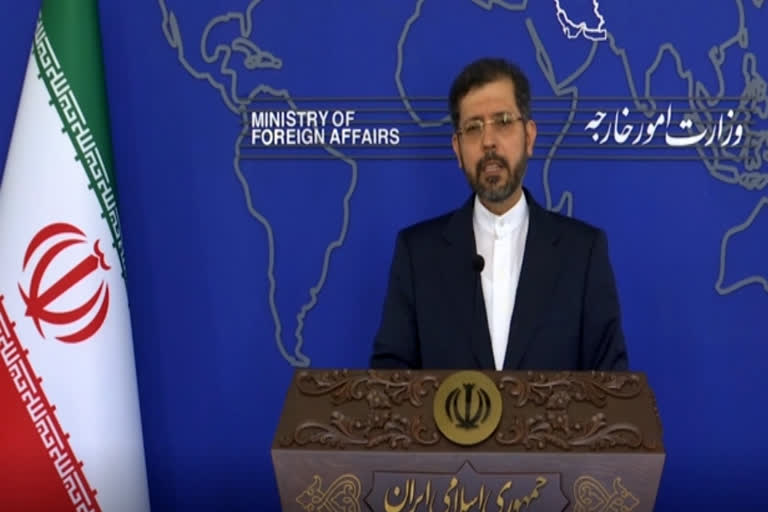Tehran: Iran said on Monday that it will allow U.N surveillance cameras to continue monitoring its nuclear sites, but no access to the recordings will be granted.
"For now, as a sign of goodwill, Iran will allow the (IAEA) surveillance cameras to continue recording, but there is no access (to the recordings)," said Saeed Khatibzadeh, a spokesman for the country's foreign ministry.
According to Khatibzadeh, the recordings will be sealed and kept in Iran.
On Sunday, Iran agreed to allow international inspectors to install new memory cards into surveillance cameras at its sensitive nuclear sites and to continue filming there, potentially averting a diplomatic showdown this week.
The announcement by Mohammad Eslami of the Atomic Energy Organization of Iran followed a meeting he held in Tehran with the Director-General of the International Atomic Energy Agency, Rafael Grossi.
"I am glad to say that today we're able to have a very constructive result, which has to do with the continuity of the operation of the agency’s equipment here," Grossi said. It "is indispensable for us to provide the necessary guarantee and information to the IAEA and to the world that everything is in order."
However, Iran's precondition to deny IAEA access to the recordings leaves the watchdog in the same position it has faced since February.
Also read: Iran to allow new memory cards in UN's nuclear site cameras
Tehran holds all recordings at its sites as negotiations over the U.S. and Iran returning to the 2015 nuclear deal remain stalled in Vienna.
Meanwhile, Iran is now enriching small amounts of uranium to weapons-grade purity as its stockpile continues to grow.
Iran and world powers agreed in 2015 to the nuclear deal, which saw Tehran drastically limit its enrichment of uranium in exchange for the lifting of economic sanctions.
In 2018, then-President Donald Trump unilaterally withdrew America from the accord, raising tensions across the wider Middle East and sparking a series of attacks and incidents.
President Joe Biden has said he's willing to re-enter the accord, but so far, indirect talks have yet to see success.
AP



